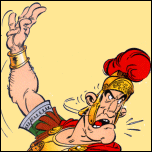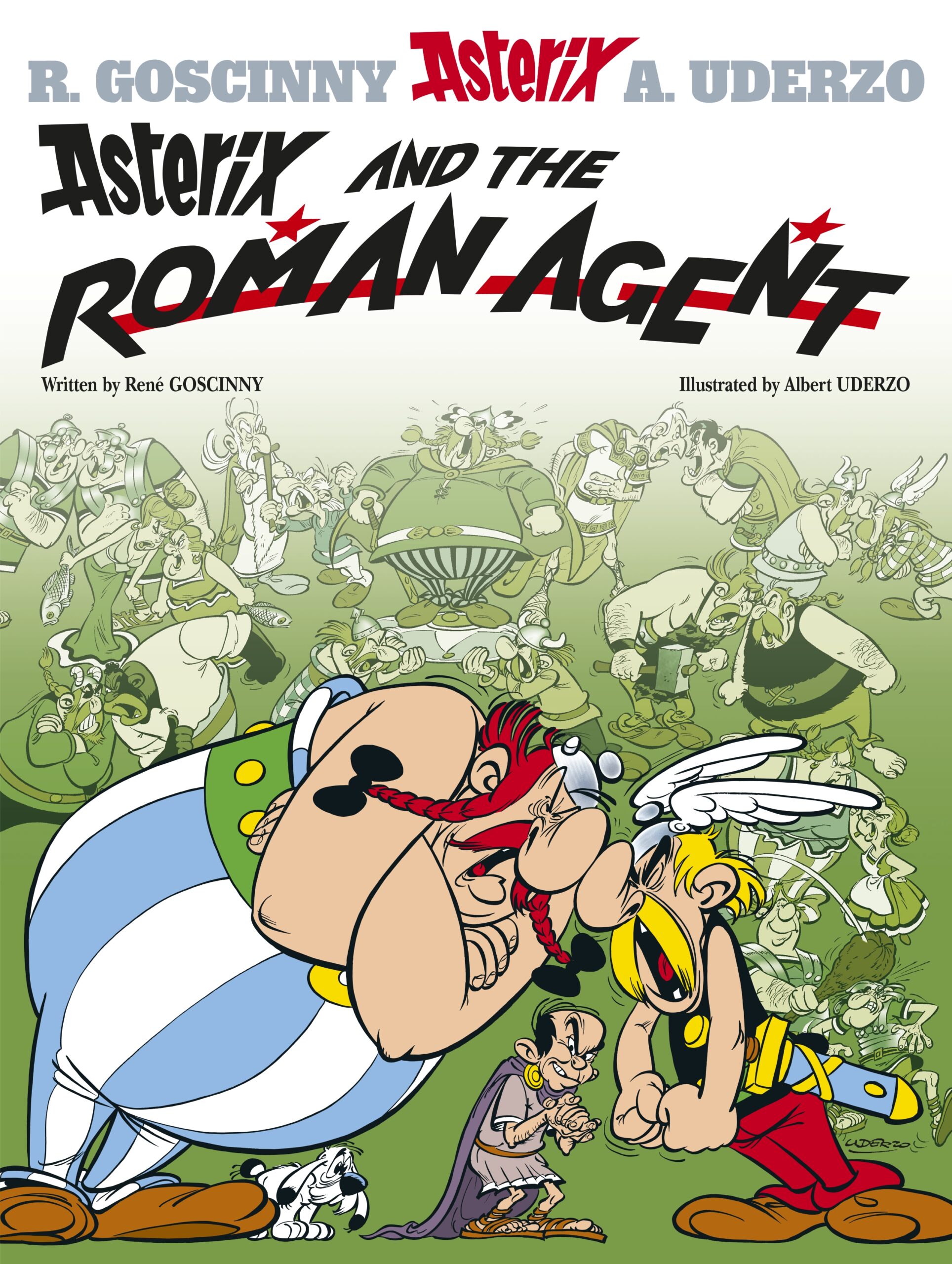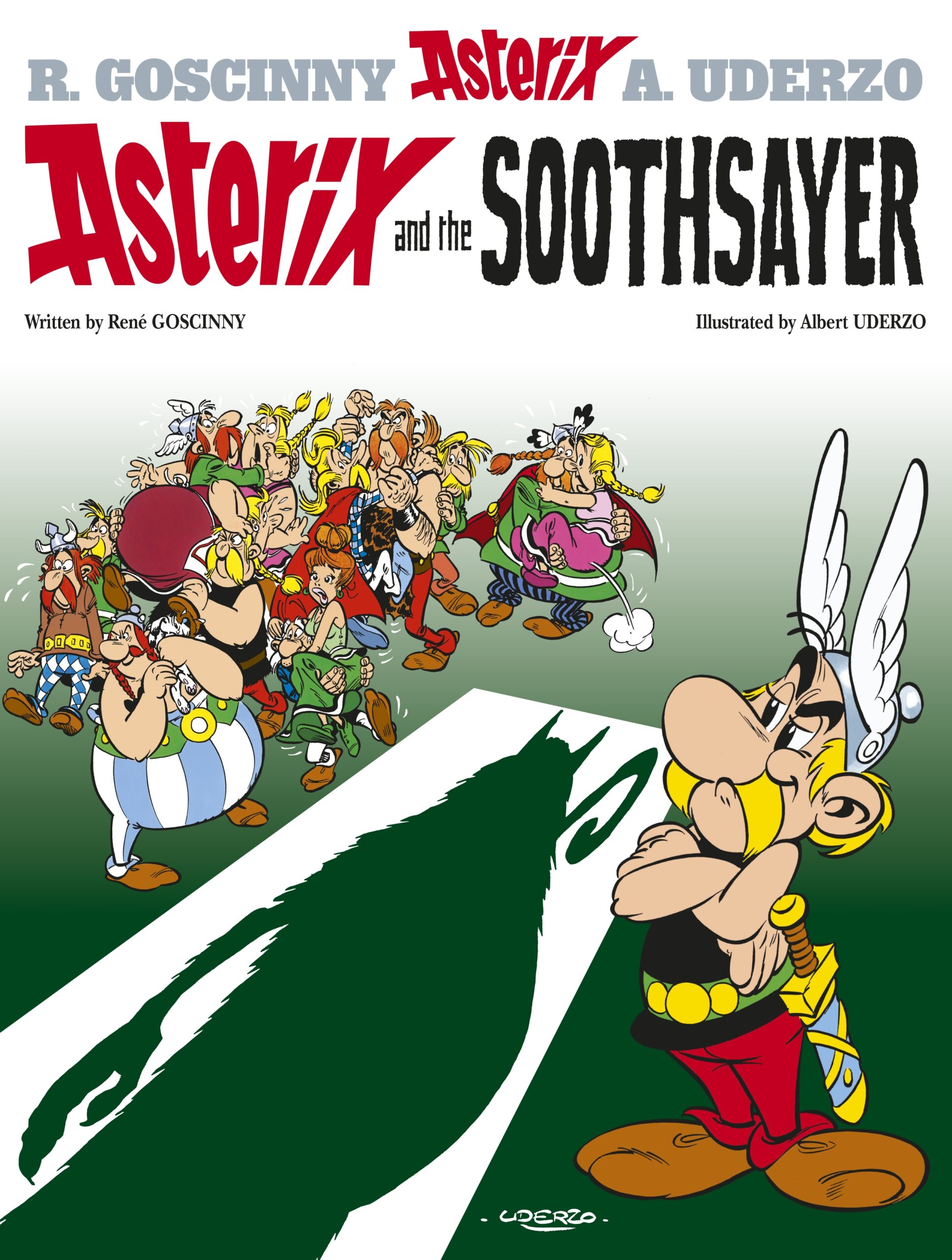
Brutus
Citizenship : Roman
French name : Brutus |
Spanish name : Brutus |
The famous French dictionary the Petit Larousse has a section on the most well-know Latin sayings, and is known to be the main source of the imperishable quotes used by the authors throughout the Asterix albums.
One of these in particular is a running gag. I am of course referring to the famous «Et tu, Brute!» an exclamation attributed to Jules Caesar expressing his anger when he spots Marcus Junius Brutus, his adoptive son, amongst his assassins. There are ample premonitory allusions in Asterix to this oh so dramatic event, for example, in Asterix and the Soothsayer Brutus can be seen playing with a dagger while a fortune-teller explains to Caesar that he has nothing to fear while he has his adoptive son nearby!
Albert Uderzo gives the character a very different twist in Asterix and Son – previously he was an unimportant figure in the shadow of his father the Emperor but in this album he becomes a threatening character, prepared to do anything to stave off the threat presented by his young rival Caesarion, the son of Caesar and Cleopatra.
To do so he goes as far as burning the Gaulish village, which results in Caesar himself discovering his treachery, provoking the imperial rage. And that’s how the adventures of Asterix teach us what the Petit Larousse doesn’t: how Brutus ended up wanting to kill Caesar. Asterix as the great historian!







